התקווה שלנו לטיפול וטיפולי CF מכילים יותר
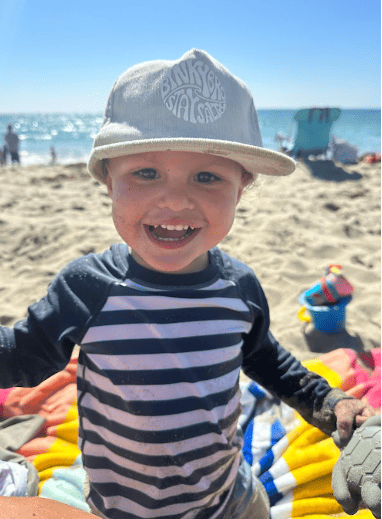
In December 2021, I was sitting down to lunch with my husband and glued to my phone. I wasn’t scrolling Instagram or TikTok. Instead, I was furiously searching Google Scholar for any cystic fibrosis (CF) mutation that was common in Ecuadorian populations.
I felt out of control and upset. I was fearful about my son Rowland’s future. We had just received his CF diagnosis at six months via sweat test the day before and met with our genetic counselor. After that meeting, we had to wait three long and grueling weeks throughout the holiday season to find out Rowland’s two CF mutations. Searching for information was my way of coping with this unexpected diagnosis.
The CF diagnosis was unexpected because I had a negative carrier screening for CF and Rowland’s newborn screening was also negative for CF. Our genetic counselor explained that Rowland likely carries two rare CF mutations that were not on the panel of mutations checked by both the carrier and newborn screenings. For the CF mutation I carry, she hypothesized that it came from my Ecuadorian heritage as the state of California doesn’t test for CF mutations specific to Ecuador.
I did not even realize that certain CF mutations could be more prevalent in certain ethnic backgrounds. It turns out her hypothesis was right – I carry a rare CF mutation, H609R, that I passed onto Rowland that has only been documented in individuals with Ecuadorian ancestry.
I felt sick to my stomach and knew that my Ecuadorian ancestry played a role in my son’s delayed diagnosis, but I felt a sense of relief when I realized how much worse this situation could have been. We could have easily gone years without a diagnosis had it not been for a combination of persistence, luck, and access to excellent health care.
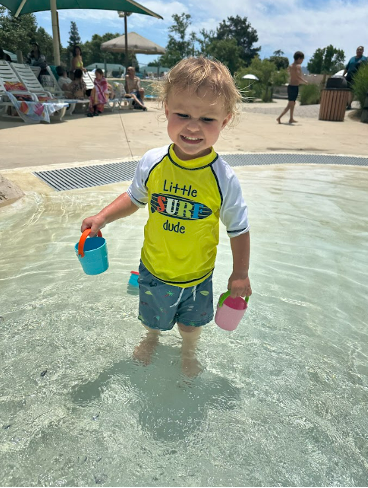
I thought about what could have been – Rowland’s health declining without us knowing why, years of missed preventative treatments, and ultimately an early death. I am grateful (and hopeful) this won’t be our experience. However, research shows that Hispanic people with CF have an increased risk of lower lung function and a higher mortality rate than non-Hispanic white populations. I believe this could be partially due to delayed diagnosis, but research is starting to show that the relationship between CF and ethnicity is likely multifactorial and complex.
While there is still a great deal of research to be done and changes to be made in a clinical setting to improve outcomes for non-white populations with CF, one thing is absolutely clear:
We cannot leave individuals behind because of their race, and/or rare CF mutations. Healthcare professionals need to understand that ethnic background can and does play a role in CF mutation detection and proper, timely diagnosis.
Newborn screening practices in each state could be improved by expanding CF mutation panels to include rare mutations.
A false negative newborn screening and subsequent delayed diagnosis are not the only issues those with rare mutations of CF (and often people of color) may experience. With mutation-targeted therapies, there is hope that people with CF will experience increased lifespans. However, this also means there will be a larger disparity in CF health outcomes between the 90% that benefit from mutation-targeted therapies in the United States and the 10% who do not – those with nonsense and other rare mutations of CF. Research shows that there are a disproportionate number of black, Indigenous, and people of color (BIPOC) who cannot benefit from existing mutation-targeted therapies.
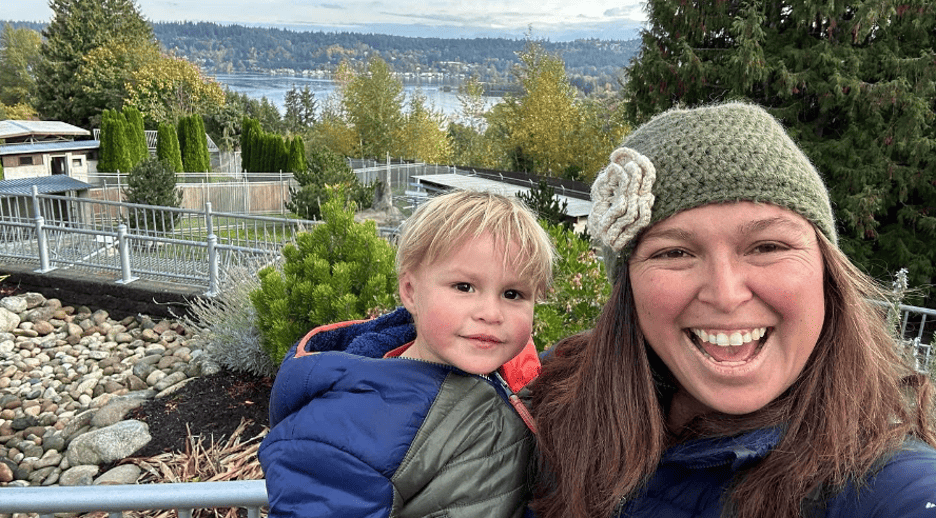
I vividly remember sitting with our genetic counselor, my stiff back against the brightly colored wall, as I anxiously waited to learn my son’s CF mutations. I was praying he would not have two Class I mutations because I knew this would mean he would not respond to the newly approved mutation-targeted therapies. The genetic counselor said, “I have good news and bad news. What do you want to hear first?”
She gave me the good news that Rowland is pancreatic sufficient and then the bad news – neither of his mutations are eligible for mutation-targeted therapy. My heart sank.
There was literature that showed one of his mutations, H609R, could respond to mutation-targeted therapies. When we did a theratyping study where we grew Rowland’s nasal cells in a lab and then tested them against the currently approved therapies, there was an increase in his CFTR function, but not large enough to reach the 10% threshold that insurance companies typically want to see to approve the cost of treatment.
When Rowland turned two, our clinic tried prescribing a mutation-targeted therapy, but we were denied. I was once again heartbroken and discouraged. In August 2023, however, we received some promising news. Our clinic wrote an appeal letter to our insurance company and in a surprising, unexpected twist, they approved our appeal. I have felt a tremendous amount of relief since Rowland started the therapy.
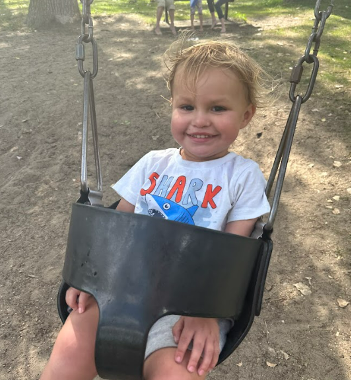
We do not know what the clinical response will be yet as it is too early to tell, but I am hopeful. We were successfully able to access the mutation-targeted therapy because we got it prescribed off-label. This means that neither of his CF mutations are on the FDA-approved list for the medication, but because our clinic wrote an evidence-based appeal, our insurance company agreed that therapy is medically necessary for our son.
Amidst the feelings of hope and gratitude, I also feel immense frustration and guilt because there are individuals with Rowland’s same H609R mutation who do not currently have access to mutation-targeted therapies. There are also individuals with other CF mutations that do not have access because their mutations make them ineligible, they are unable to tolerate the side effects or because they live in a country where they lack access. There is more work to be done so that more people with CF can benefit from mutation-targeted therapies – and hopefully one day, new mutation-agnostic therapies.
The mutation-targeted therapy should help my son, but we are not sure if it will be the miracle that others with CF have experienced, as it is not designed for his CF mutation. There is an urgent need for genetic therapies, which have the potential to reach all people with CF regardless of the mutation since they are not mutation-targeted. With genetic therapies, no one will be left behind, and they can hopefully close the disparity in health outcomes that will only widen between the 90% that benefit from mutation-targeted therapies in the U.S. and the 10% that do not.
There is a misconception that ethnic background does not play a role in CF diagnosis and treatment; however, our Ecuadorian heritage absolutely played a role in Rowland’s delayed diagnosis — from my false negative carrier and Rowland’s false negative newborn screening, to the additional hurdles we faced accessing a mutation-targeted therapy.
I also acknowledge the privilege we have that Rowland was born in a time where CF science and research is advancing at an unprecedented rate and he has access to treatments people living with CF did not have access to only a few years ago. I also believe that his prognosis could have been much worse had we not had access to excellent health insurance due to my husband’s job and living in an area where we have access to a strong CF care team.
It is important to bring awareness to the health inequities that exist within the CF community as it’s not talked about enough. I think about the positive impact that could occur for BIPOC individuals – specifically improved longevity and quality of life, if more awareness existed about why there are health disparities between white and non-white populations. I want healthcare providers like OBGYNs, pediatricians, GIs, and newborn screening centers to be aware of how ethnic background can play a role in CF mutation detection percentages, and how CF can present differently in each person. I want healthcare providers to know that CF can present in people of all races and ethnicities. I want all fifty states to have expanded CF mutation panels. I want people to understand that mutation-targeted therapies are not a cure for CF and that there is an urgent need for genetic therapies. All of these details matter because they could ultimately improve – or save – someone’s life.
Supported by a grant from Genentech, a member of the Roche Group.
מְחַבֵּר
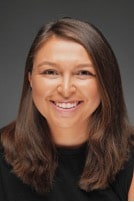 Cambrey Vasconez White is a parent of a child with cystic fibrosis (CF) and lives in Los Angeles, California. She has always had a passion for advocating for students through her past work as a school counselor and has more recently found meaning in advocating for those with rare CF mutations. Cambrey currently sits on multiple committees for the CF Foundation including the Newborn Screening Steering Committee whose goal is to improve the equity, sensitivity, and timeliness in CF Newborn Screening. Cambrey has a bachelor’s degree in psychology and social behavior from the University of California, Irvine, and a master’s degree in school counseling from Loyola Marymount University. You can follow her on instagram at @cfadvocacy.
Cambrey Vasconez White is a parent of a child with cystic fibrosis (CF) and lives in Los Angeles, California. She has always had a passion for advocating for students through her past work as a school counselor and has more recently found meaning in advocating for those with rare CF mutations. Cambrey currently sits on multiple committees for the CF Foundation including the Newborn Screening Steering Committee whose goal is to improve the equity, sensitivity, and timeliness in CF Newborn Screening. Cambrey has a bachelor’s degree in psychology and social behavior from the University of California, Irvine, and a master’s degree in school counseling from Loyola Marymount University. You can follow her on instagram at @cfadvocacy.
